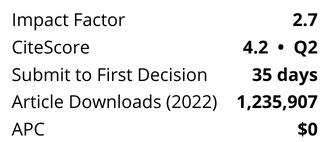Anaerobic digestion (AD) plants are highly efficient wastewater treatment processes with possible energetic valorisation. Despite these advantages, many industries are still reluctant to use them because of their instability in the face of changes in operating conditions. To the face this drawback and to enhance the industrial use of anaerobic digestion, one solution is to develop and to implement knowledge base (KB) systems that are able to detect and to assess in real-time the quality of operating conditions of the processes. Case-based techniques and heuristic approaches have been already tested and validated on AD processes but two major properties were lacking: modularity of the system (the knowledge base system should be easily tuned on a new process and should still work if one or more sensors are added or removed) and uncertainty management (the assessment of the KB system should remain relevant even in the case of too poor or conflicting information sources). This paper addresses these two points and presents a modular KB system where an uncertain reasoning formalism is used to combine partial and complementary fuzzy diagnosis modules. Demonstration of the interest of the approach is provided from real-life experiments performed on an industrial 2,000 m3 CSTR anaerobic digester.
Skip Nav Destination
Article navigation
Research Article|
July 01 2005
Modular expert system for the diagnosis of operating conditions of industrial anaerobic digestion plants
L. Lardon;
L. Lardon
*Laboratoire de Biotechnologie de l'Environnement, LBE-INRA, Av. des Etangs, 11100 Narbonne, France
Search for other works by this author on:
A. Puñal;
A. Puñal
*Laboratoire de Biotechnologie de l'Environnement, LBE-INRA, Av. des Etangs, 11100 Narbonne, France
Search for other works by this author on:
J.A. Martinez;
J.A. Martinez
**AGRALCO S.COOP, Camino de Ordoiz, 5 31200 Estella, Navarra, Spain
Search for other works by this author on:
J.P. Steyer
J.P. Steyer
*Laboratoire de Biotechnologie de l'Environnement, LBE-INRA, Av. des Etangs, 11100 Narbonne, France
Search for other works by this author on:
Water Sci Technol (2005) 52 (1-2): 427–433.
Citation
L. Lardon, A. Puñal, J.A. Martinez, J.P. Steyer; Modular expert system for the diagnosis of operating conditions of industrial anaerobic digestion plants. Water Sci Technol 1 July 2005; 52 (1-2): 427–433. doi: https://doi.org/10.2166/wst.2005.0549
Download citation file:
Sign in
Don't already have an account? Register
Client Account
You could not be signed in. Please check your email address / username and password and try again.
Could not validate captcha. Please try again.
eBook
Pay-Per-View Access
$38.00




%20cropped.png?versionId=5945)